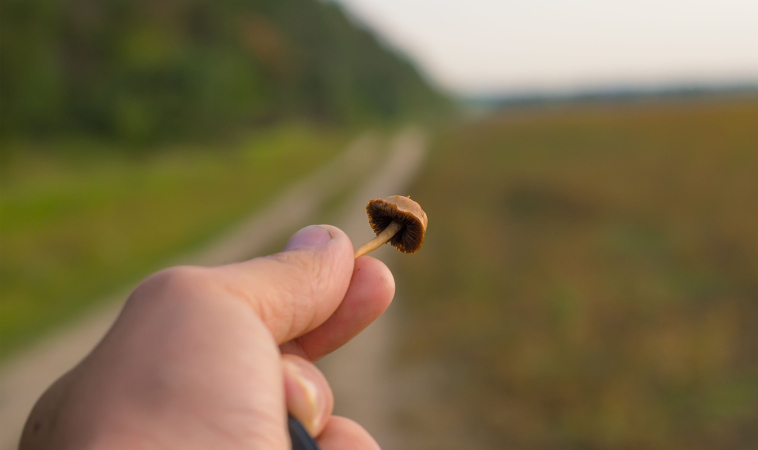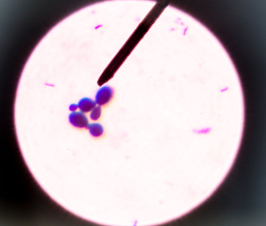If phase III clinical trials are successful, researchers suggest categorizing the drug as schedule IV
In an evaluation of the safety and abuse research on the drug in hallucinogenic mushrooms, Johns Hopkins researchers suggest that if it clears phase III clinical trials, psilocybin should be re-categorized from a schedule I drug—one with no known medical potential—to a schedule IV drug such as prescription sleep aids, but with tighter control.
The researchers summarize their analysis in the October print issue of Neuropharmacology
“We want to initiate the conversation now as to how to classify psilocybin to facilitate its path to the clinic and minimize logistical hurdles in the future,” says Matthew W. Johnson, Ph.D., associate professor of psychiatry and behavioral sciences at the Johns Hopkins University School of Medicine. “We expect these final clearance trials to take place in the next five years or so.”
Following the Controlled Substances Act of 1970, any drug with the potential for abuse is categorized based on criteria that take into account whether the drug has accepted medical use, and its safety and the potential for abuse. Although preliminary research studies suggest that psilocybin may be effective for smoking cessation and for disorders such as cancer-specific depression and anxiety, it must clear phase III clinical trials before the Food and Drug Administration can be petitioned to reclassify it.
Studies in animals and humans both show low potential for abuse
Studies in animals and humans both show low potential for abuse, the researchers say. When rats push a lever to receive psilocybin, they don’t keep pushing the lever like they do for drugs such as cocaine, alcohol or heroin. When it comes to human studies, people who have used psilocybin typically report using it a few times across their lifetime.
Psilocybin also is lowest in the potential for lethal overdose
As for safety, studies show it frequently falls at the end of the scales with the least harm to users and society, say the researchers. Psilocybin also is lowest in the potential for lethal overdose as there is no known overdose level.
Psilocybin is not without risks of harm
“We should be clear that psilocybin is not without risks of harm, which are greater in recreational than medical settings, but relatively speaking, looking at other drugs both legal and illegal, it comes off as being the least harmful in different surveys and across different countries,” says Johnson.
Press Release: John Hopkins Press Release (9/28/2018)
 Razi Berry is the founder and publisher of the journal Naturopathic Doctor News & Review that has been in print since 2005 and the premier consumer-faced website of naturopathic medicine, NaturalPath. She is the host of The Natural Cancer Prevention Summit and The Heart Revolution-Heal, Empower and Follow Your Heart, and the popular 10 week Sugar Free Summer program. From a near death experience as a young girl that healed her failing heart, to later overcoming infertility and Chronic Fatigue Syndrome and Fibromyalgia through naturopathic medicine, Razi has lived the mind/body healing paradigm. Her projects uniquely capture the tradition and philosophy of naturopathy: The healing power of nature, the vital life force in every living thing and the undeniable role that science and mind/body medicine have in creating health and overcoming dis-ease. Follow Razi on Facebook at Razi Berry and join us at Love is Medicine to explore the convergence of love and health.
Razi Berry is the founder and publisher of the journal Naturopathic Doctor News & Review that has been in print since 2005 and the premier consumer-faced website of naturopathic medicine, NaturalPath. She is the host of The Natural Cancer Prevention Summit and The Heart Revolution-Heal, Empower and Follow Your Heart, and the popular 10 week Sugar Free Summer program. From a near death experience as a young girl that healed her failing heart, to later overcoming infertility and Chronic Fatigue Syndrome and Fibromyalgia through naturopathic medicine, Razi has lived the mind/body healing paradigm. Her projects uniquely capture the tradition and philosophy of naturopathy: The healing power of nature, the vital life force in every living thing and the undeniable role that science and mind/body medicine have in creating health and overcoming dis-ease. Follow Razi on Facebook at Razi Berry and join us at Love is Medicine to explore the convergence of love and health.

















